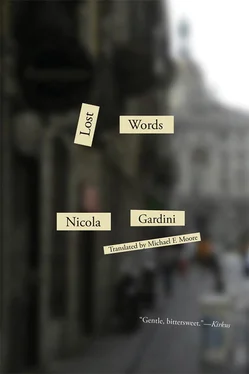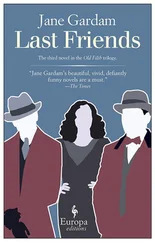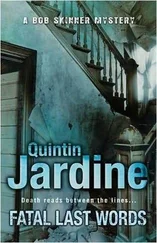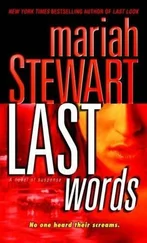“May whoever it is drop dead,” Mom swore. “Stay here.”
She got the broom and went upstairs to take a look. After a few minutes I recognized the sound of her heels, which came at me faster and faster from one landing to the next, ta ta ta ta ta tatatatatatatatatatatata , like a summer rain, the first timid drops suddenly turning into a cloudburst. Tapping from below with the broomstick, she managed to remove the blockage stuck halfway up the trash chute.
When she came back from the trash room, I almost fainted — a wounded phantom appeared before me. The smell of blood forced me to turn away and close my eyes. Along with the blockage, a glass bottle had come down. I was sure my mother would bleed to death. She washed herself, removed a glass shard with her eyebrow tweezers, and I helped her bandage up her wrists. Then she asked me to wipe up the red spots that had dripped on the floor — which ran from the door to the windows to the bathroom sink.
My father returned from work, and since the blood kept seeping through the gauze, he accompanied her to the emergency room. I stayed behind to stand guard.
Signorina Terzoli came by to ask for a pint of milk. She always needed something. My mother was right to say that some people mistook the loge for a deli.
“My mother’s not here,” I said boldly. “She had to go to the hospital. Someone threw a bottle down the chute.”
“Oh my goodness!.. Who’s going to clean the landings now?”
I didn’t give her a drop of milk. I told her we were all out. The old crone looked me up and down with irritation, and for a second I was afraid she was going to search our fridge.
“Listen, Chino,” she went on to say with a sweeter tone, “is it true that Miss Lynd is a relative of Liz Taylor? That’s what they say… What do you know about the lady? Have you met her?”
I was unable to satisfy her curiosity. And even if I could’ve, I wouldn’t have said a thing to her.
*.
The sight of Elvira bandaged up to her elbows unleashed a thousand exclamations from the signore. For once they expressed some pity, but only because they shuddered at the thought of a shard of glass getting stuck in their own flesh. My mother, who thought any one of them might be the culprit, sighed: “I don’t know who did this to me, but I wouldn’t want to be in her shoes right now!” They ignored her all the same. They had already lost interest, distracted by the rumor that Petillo would be moving out soon and certain Miss Lynd would be taking his place. No one knew where she was from. Some suggested that she was arriving straight from Paris. Others ventured that she was Australian. Vezzali claimed that she had been the wife of an ambassador, but the others believed she had been married five or six times, like Liz Taylor — who she supposedly resembled — and had lived off her husband, until he lost all his money gambling or on younger mistresses. Terzoli kept insisting that she was related to Liz Taylor.
My mother cursed them, each and every one, because in her condition she could no longer work, like ironing for the signore in the buildings next door, or crocheting a blanket for Dell’Uomo’s relative. The accident was going to cost her dearly. “You, my dear lady, owe me X amount for all the hours I was forced to sit around idly…” She would take her frustrations out on me, as if she were speaking directly with one of the signore: “And you, what do you think? You have to reimburse me, my dears! Do you take me for a fool? Well you’re dead wrong. If I can’t buy a house for myself on your account, then I’ll kill you with my bare hands — I swear I will!”
One night, on his way back from the auto repair shop, Riccardo, the Lojacono’s son, stopped by our loge.
“I heard about the accident, Signora Elvira. I’m so sorry.”
Mother never imagined that the boy, who had been such a rascal when he was little, could ever have spoken to her that way, and with gratitude, she told him that he had become a fine young man, that holding down a job was good for him. Riccardo blushed, because the compliment had come from a woman who was still quite pretty, but also because, in all probability (the suspicion came to me immediately), he considered them undeserved. He, too, by coincidence, had a bandage on his wrist. To break free from my mother’s insistent stare, he explained that a few days earlier a steel pipe had fallen on his arm… Only a sap like my mother would’ve believed it. After he left she exclaimed, “What beautiful blue eyes.”
*.
Signora Aldrovanti refused to pay for damages: my mother had gotten hurt, but it was her own fault — she knew there were certain risks in the trash room, she should’ve been more careful, the way a good doorwoman is expected to be. You have to pay for your mistakes. Next time she should wear safety gloves. “And if next time the glass ends up in my eyes?” mother protested to me. “What am I supposed to do? Put on a ski mask before I enter the trash room?”
To prevent more accidents, I made five signs, one for each floor of the building, which I taped to the balcony doors.
IT IS PROHIBITED TO THROW GLASS
BOTTLES DOWN THE TRASH CHUTE
Now my father had to do the chores before leaving for the factory. He got up at five, raked the leaves in the courtyard, mopped the landings, dusted the main entrance, and polished the elevator panels and the mailboxes. During the day the trash bags were replaced by the neighboring doorwoman, from Via Icaro 18, whom mother had promised to compensate with a wool sweater as soon as her wounds were healed. She kept watch — the only thing she could still do — with her forearms resting on the table.
Idleness was making her even more irritable. She was constantly yelling at me: “Stand still!” “Don’t touch!” “Shup up!” Or, if another little boy was within range, she would start picking on him for getting mud on the hall carpet or yelling at him for not saying hello when he passed by on his way home from school. She would follow him up the stairs like a woman possessed, raising her bandaged wrists. “Hey, you!” she would shout. “What did I tell you?” The child would stutter, “Excuse me,” not knowing what he was being accused of. Ignoring his apologies, she would make a scene that always culminated in an attack on the upbringing he’d received from his parents: “Go ahead and tell them. I’ve got a piece of my mind for them, too!”
*.
Hoping to lift her spirits, Dad thought it would be a good idea to invite a colleague to lunch the next Sunday. He explained that the guest was Tavazzi, a union organizer, who, like all union organizers, had sold out to the bosses. Not to mention that he was an opera lover, a loggionista . But for now, given what had just happened to him, they had to turn a blind eye. Two of his three children had been hit by a car on their way to school, dying instantly. The only one left was the youngest, who was more or less the same age as me.
My mother was happy to invite the poor things over, especially since we had no friends apart from the two neighboring doorwomen, who every now and then dropped by for a cup of coffee.
On Sundays the loge was closed. Even if we were having a grieving family over, we could still pretend it was a holiday. Despite the curtains pulled over the door and window, the iron braces in the wall, the fuse box and the intercom, we could still act like we were living in a normal house, like everyone else. My mother, cursing the bandages on her wrists, cooked enough for an army.
If we hadn’t been aware of the tragedy, we wouldn’t have noticed anything amiss about our guests. When mother said, “Condolences,” according to the ritual she had been taught since childhood, they reacted as if it were the dumbest thing they had ever heard. We looked like the ones who were in mourning.
Читать дальше












